Sara Safari is a mountain climber, professor, author and activist, championing education for girls in Nepal and around the world.
She was born in Tehran in 1981, and began climbing a few years after she moved to the Los Angeles in 2002. She studied at UCLA and, after a stint working for large companies, she went into teaching, becoming a professor in electrical engineering at California State University Fullerton.
She set herself the challenge of climbing Mount Everest — but soon became disillusioned with training. But then she met the founder of Empower Nepali Girls, which offers scholarships and educational support for girls in some of Nepal’s most vulnerable communities. Many of them are at risk of being forced into underage marriages or the victim of human trafficking. “I was a thousand times more motivated, ” Safari says. “I promised that for any mountain that I climb, I would auction every foot of the climb for a dollar. Everest is 29,000 feet, so that's $29,000. The cost for one girl to go to school for one whole year is $170. So $29,000 almost pays for 200 girls. When I decided to climb for the girls, I had an incentive far beyond personal achievement.”
On April 25, 2015, as Safari made her ascent up Everest, an earthquake with a magnitude of 7.8 hit Nepal. Almost 9,000 people were killed, and16,800 people were injured. Thousands of people were left homeless or displaced. At least 18 climbers were killed in avalanches caused by aftershocks. Safari and others were stranded on Everest; she was forced to cling on to the icefall using her ice axe. When she was eventually rescued, she returned to find that many of the girls’ villages were devastated.
She wrote about her experiences on Everest, and her motivation to raise awareness of life for young girls in Nepal, in her book, Follow My Footsteps, which was published in May 2016.
Safari donates the proceeds of her book to her cause, promoting its message of education, endurance and empowerment through events and talks at universities, conferences, and other venues. On May 20, she is due to speak as part of the Institut des Hautes Etudes TEDx series in Paris. She regularly travels to Nepal — her next trip will be on April 23.
Stories of Transformation
In 2015, the United Nations awarded Safari the Global Citizen prize for her work in Nepal. As a board member and director of development for Empowering Nepali Girls, Safari tries to demonstrate just what women can achieve. The organization works with 300 girls from 14 different villages across Nepal. Safari is proud of the incredible stories of transformation she has witnessed, including a young women who was given a scholarship 10 years ago and who is now, at age 21, the first girl from a lower caste to go to medical school in Nepal.
Safari emphasises the importance of building confidence, and tells the story of a girl that really had an impact on her. “The very first week she arrived from the village to the city, she was extremely shy. I kept talking to her and she kept looking down. I told her it's important to make eye contact. And she couldn't.” But the girl not only got over her fears of interacting with other people, she took up martial arts, and excelled at it — and within two years, she was able to address an audience of 500 people, urging women to unite and work together. “I couldn't believe my eyes,” says Safari.
As part of her work, Safari invites women working in a range of professions — doctors, teachers, engineers, social workers — to join her on her trips. “They introduce themselves in front of the girls, in front of the whole village, and tell them what they do in life and how they are not married yet, and that they don't have kids at age 25. You should see the spark in their [the girls’] eyes when they realize that there are other possibilities. They find a role model, and that's very precious.”
It’s a need that Safari can relate to, because it so strongly echoes her own experience of growing up in Iran. “I didn't have a role model, a strong woman. That bothered me my whole life,” she says. “There were women in the government in Iran, but they were so different from me. They looked as if they didn't believe in the same things that I believed in. Every time I wanted to just do something different, I was told, ‘no, you're a girl, you're not supposed to do this.’” She recalls the many women around her wth huge potential, but who were held back “because of the society, because of their husbands, because of their brothers and their dads, because of the neighbors, because of the culture.” Religion also played its part in silencing women, she says.
Bringing the Message to Iran
Safari hopes that Follow My Footsteps will soon be published and available in Iran. In 2017, she submitted it t to Iran’s Ministry of Culture and Islamic Guidance for consideration. The ministry issues permits for all books published in Iran, and operates a strict censorship policy when it comes to material deemed to be against the Iranian constitution or Islamic values. But Safari says that as long as the core message of the book stays in tact, she’s willing to work with Iran’s ministry censors. “I'm flexible about removing whatever they ask me to remove,” she says. It's more important for me to publish the book rather than anything else. And when my book is out in the stores, I will go back to Iran to do book signings and talks.” In this way, she hopes to take her message to Iranian women. “I want girls in Iran who are looking for something that I was looking for [to read it]. All my life, I wanted to read a story about a strong Iranian woman. I'm hopeful.”
Safari admits her positive outlook and drive were somewhat knocked back by the election of Donald Trump as president of the United States. “I left Iran because I didn't want to feel like a second-class citizen — that’s how I felt as a woman there. Now with the executive order, there’s sudden discrimination.” She says she’d been used to proudly stating the fact that she’s Iranian, and now, in some situations, she thinks twice. “It depends on who I'm talking to. If I'm talking to people who are defending the new president, or like the new president, I kind of express myself less. I'm careful. I feel fear. I feel like I need to hide, I need to be invisible for now.”
It’s clear that the scars of discrimination run deep, and the impulse to self-censor or accept limitations can easily re-emerge. But even as Safari accepts the urge to retreat in the current climate, she rejects it. “I wish all people would come together and use this time to raise more awareness of all the social justice issues we have all been ignoring.,” she says. “Maybe I should focus on empowering American women,” she adds with a laugh.
visit the accountability section
In this section of Iran Wire, you can contact the officials and launch your campaign for various problems





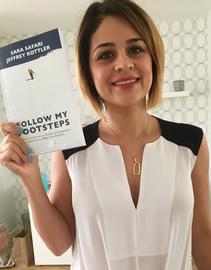

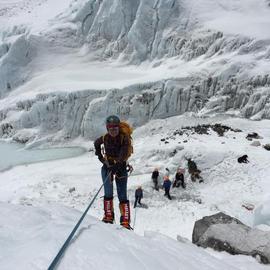
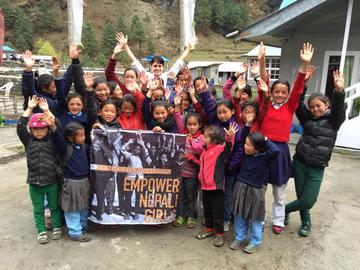
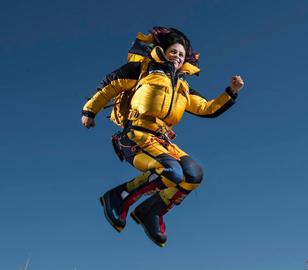
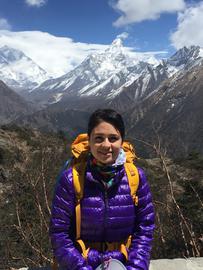
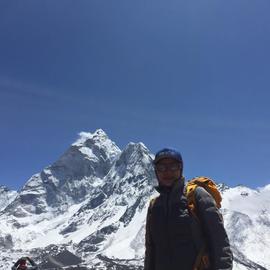



















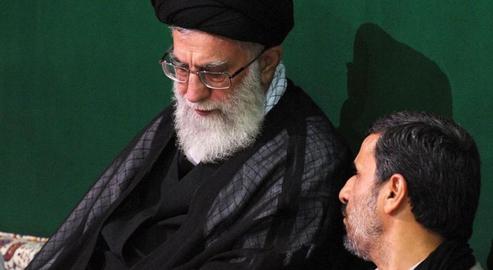
comments